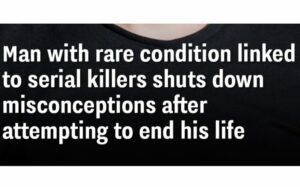From Beam Consultancy: “Who the hell am I to say this? Well, I’ve worked in mental health services for over 25 years. The last 10 have been in services specifically for people who hurt themselves and want to die. The people I’ve worked with have almost always had a diagnosis of ‘Borderline Personality Disorder’ or ’emotionally unstable personality disorder’ as it used to be called in the UK. There was a time that I thought the diagnosis was useful and people just needed to understand it better, now I’m convinced that it does more harm than good.
Marsha Linehan is the creator of ‘Dialectical Behaviour Therapy.’ It is probably the most researched therapy for BPD and the only named therapy in the UK NICE guidelines for BPD. Linehan says:
‘I tell my patients if you end up in the Emergency Room for a medical disorder for god’s sakes do not tell them you meet criteria for “Borderline Personality Disorder.” Do not tell anybody. You’ll be treated differently and many, many mental health practitioners wont see someone who meets criteria for “Borderline Personality Disorder.”’
I’m trying to think of another diagnosis where one of the leading experts would advise people to keep their diagnosis secret in order to avoid mistreatment from health professionals. There can’t be many.
I was prompted to write this after I was doing some training and a clinician who worked with students in a university kept meeting people who were asking for a BPD diagnosis. They’d seen something on Tik Tok, had a google, and they were convinced they’d found a name for the discomfort, stress and pain they were experiencing. The pain is real, but this blog is an attempt to explain why you might not want to describe it as BPD.”

***
Back to Around the Web











